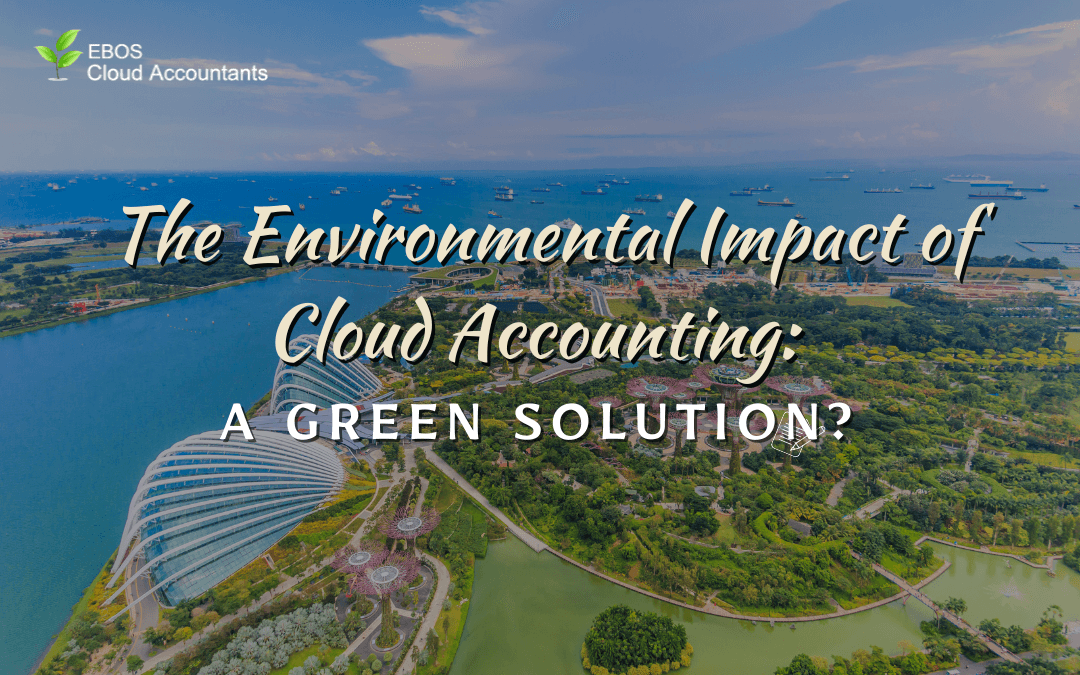As companies worldwide prioritise sustainability, the hunt for environmentally friendly solutions has spread to all aspects of operations, including accounting. Traditional accounting techniques, which rely on lengthy paper trails and energy-intensive on-premises computers, are under scrutiny for their environmental effect. In contrast, cloud accounting has emerged as a potentially greener option, offering not just increased efficiency and cost savings but also a smaller environmental imprint. This article investigates the environmental effect of cloud accounting and assesses its suitability as a green solution.
Reducing Paper Waste
One of the most obvious advantages of cloud accounting is a huge reduction in paper consumption. Traditional accounting systems sometimes need copious volumes of paper for invoices, receipts, ledgers, and reports. According to the Environmental Protection Agency (EPA), the average office worker consumes around 10,000 sheets of paper each year, with accounting and administrative chores accounting for a major amount of that total. Cloud accounting solutions, by digitising these operations, may significantly reduce paper use, helping to save forests and reduce waste.
Energy Efficiency
The energy usage of typical on-premises servers is another major environmental problem. These servers require not just a lot of power to run, but also cooling systems to keep them from overheating. Cloud accounting, which is housed on remote data centres, uses economies of scale to improve energy efficiency. Major cloud service providers, like Amazon Web Services (AWS), Microsoft Azure, and Google Cloud, spend extensively in energy-efficient technology and renewable energy sources to power their data centres. Google, for example, says that their data centres are twice as energy-efficient as the average business data centre and that they want to run on carbon-free electricity 24 hours a day by 2030.
Carbon Footprint
Businesses that move accounting activities to the cloud can drastically cut their carbon footprint. According to a research conducted by the Lawrence Berkeley National Laboratory, transferring typical software programmes used by 86 million US workers to the cloud may save enough electricity each year to light Los Angeles. Cloud accounting reduces the need for physical office space, commuting, and business travel, hence lowering carbon footprints. Furthermore, cloud providers’ dedication to sustainability implies that their infrastructure is designed for little environmental effect.
E-Waste Management
The quick depreciation of hardware in typical IT installations generates significant electronic trash (e-waste). Cloud accounting helps to address this issue by decreasing the requirement for periodic hardware updates. Cloud service providers maintain and upgrade their hardware centrally, while following strict e-waste recycling and disposal guidelines. This centralised method guarantees that fewer gadgets are thrown prematurely, which reduces the overall volume of e-waste.
Challenges and Considerations
While cloud accounting has many environmental advantages, it is not without drawbacks. The environmental effect of data centres, while alleviated by green technology, remains substantial. Data centres require large volumes of water to cool and therefore have significant land usage footprints. Furthermore, the initial resource commitment to cloud accounting can be significant, necessitating careful planning and investment.
Furthermore, the sustainability of cloud accounting is strongly reliant on the energy mix of data centres. In areas where fossil fuels are the primary energy source, the environmental advantages may be less significant. As a result, organisations must analyse the energy sources of their cloud service providers and select those with strong sustainability strategies.
Conclusion
Cloud accounting is a potential move towards greener company operations. Cloud accounting may help to reduce paper waste, improve energy efficiency, lower carbon footprints, and manage e-waste more efficiently, all of which contribute to environmental sustainability. Businesses must, however, stay attentive about data centres’ larger environmental consequences and select cloud providers that are dedicated to sustainable standards. As technology and green efforts advance, cloud accounting is positioned to play a critical role in the road to a more sustainable future.
Check out our website at https://ebos-sg.com/ to explore more articles and discover how our Cloud Accountant Services can support you on your business.







